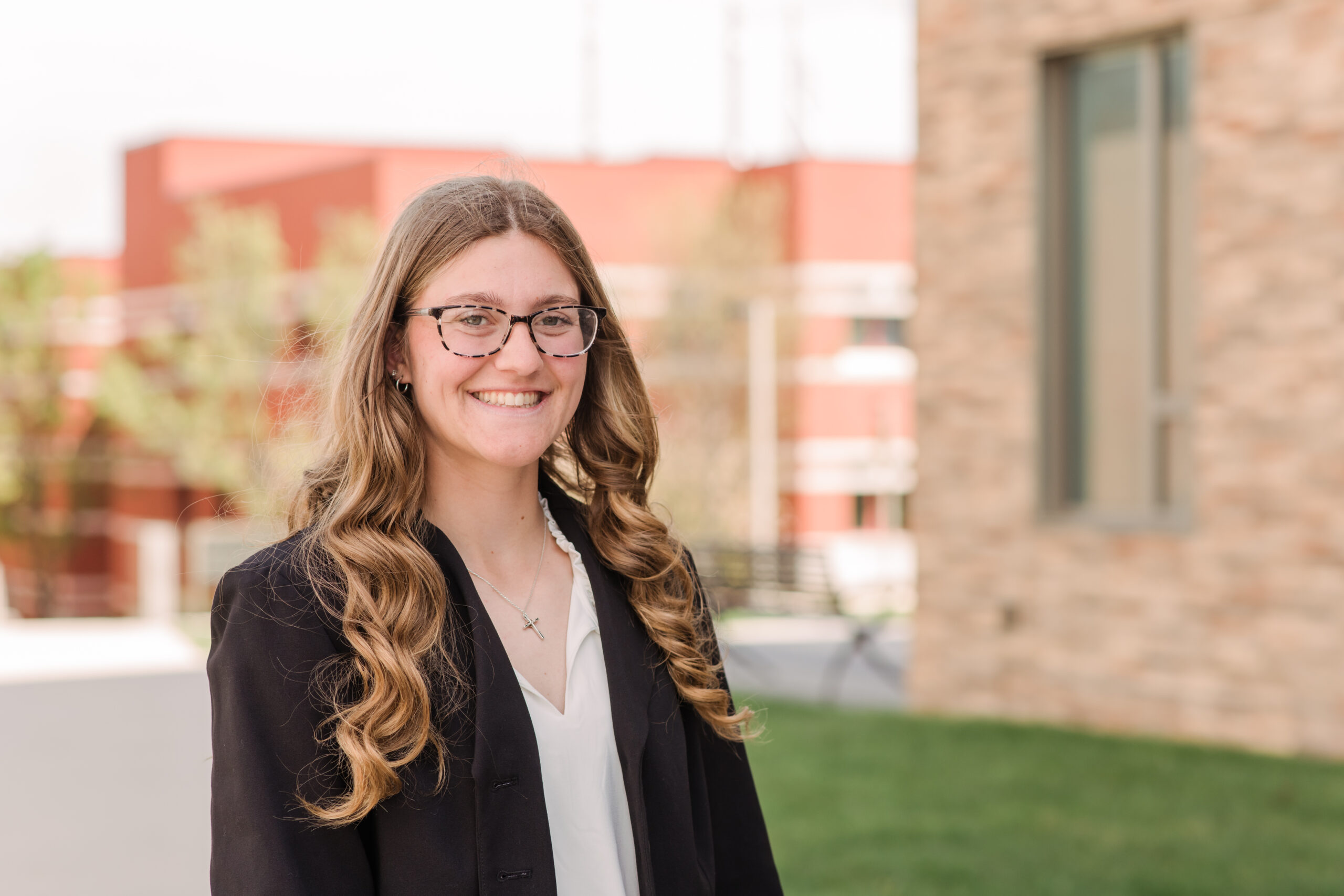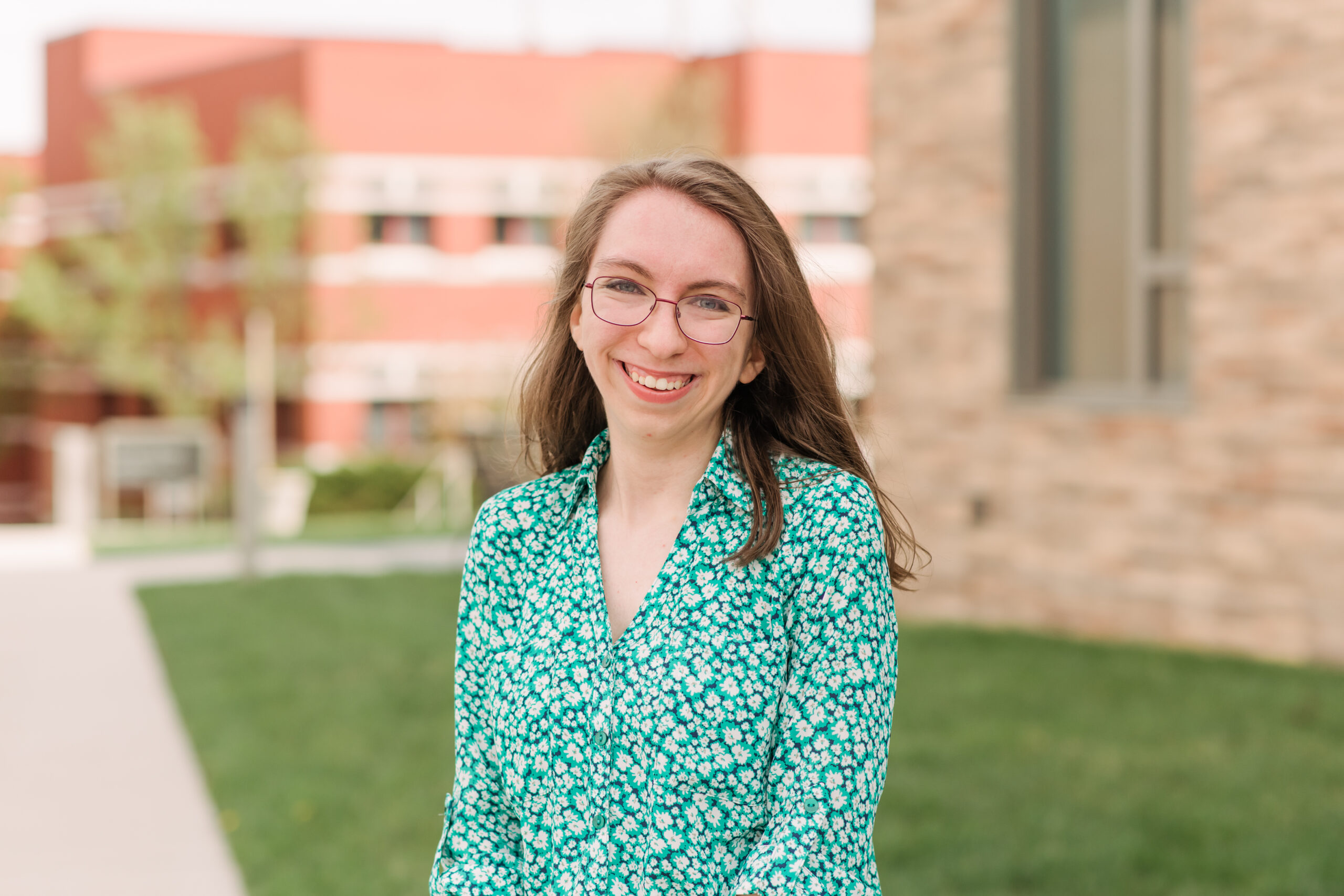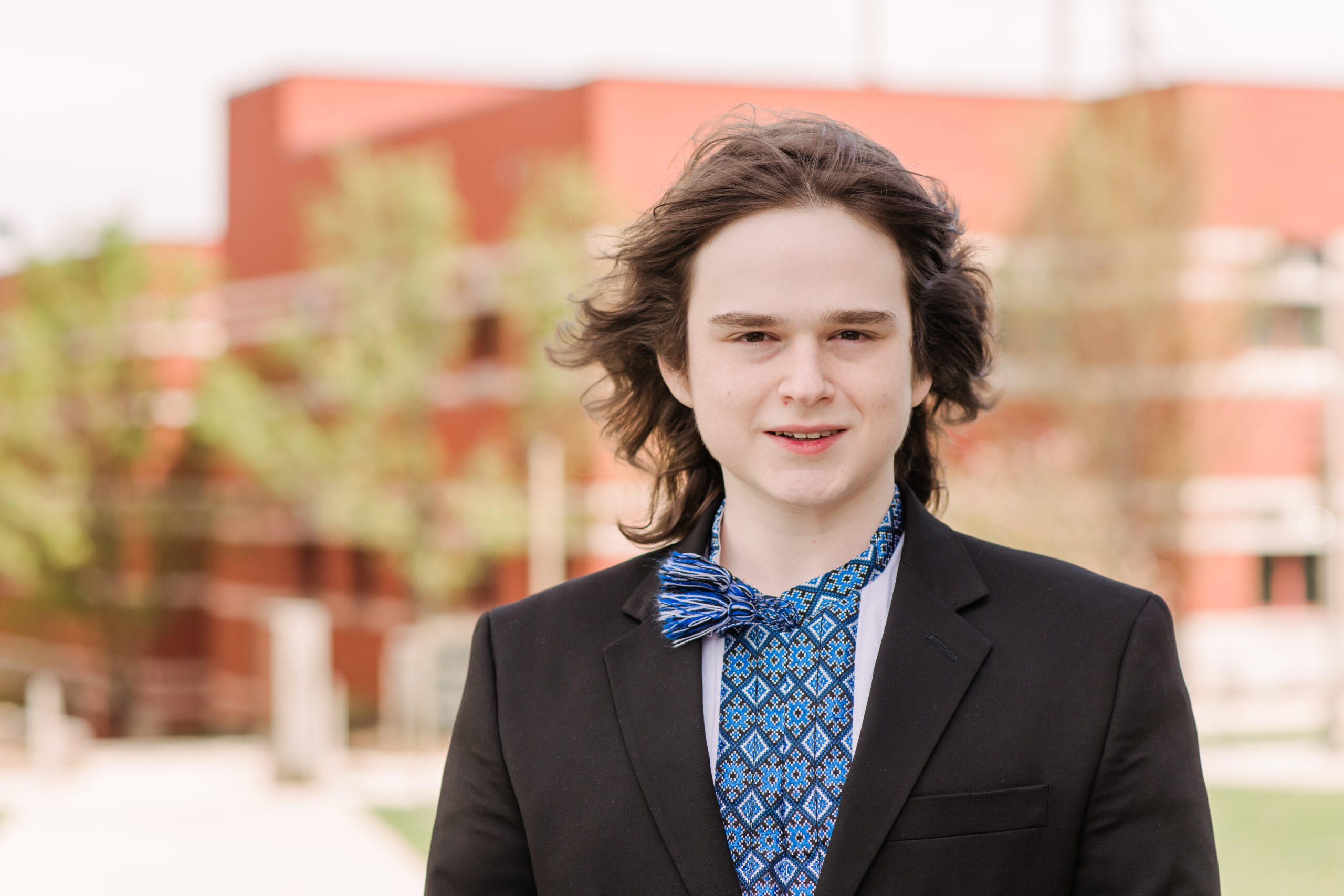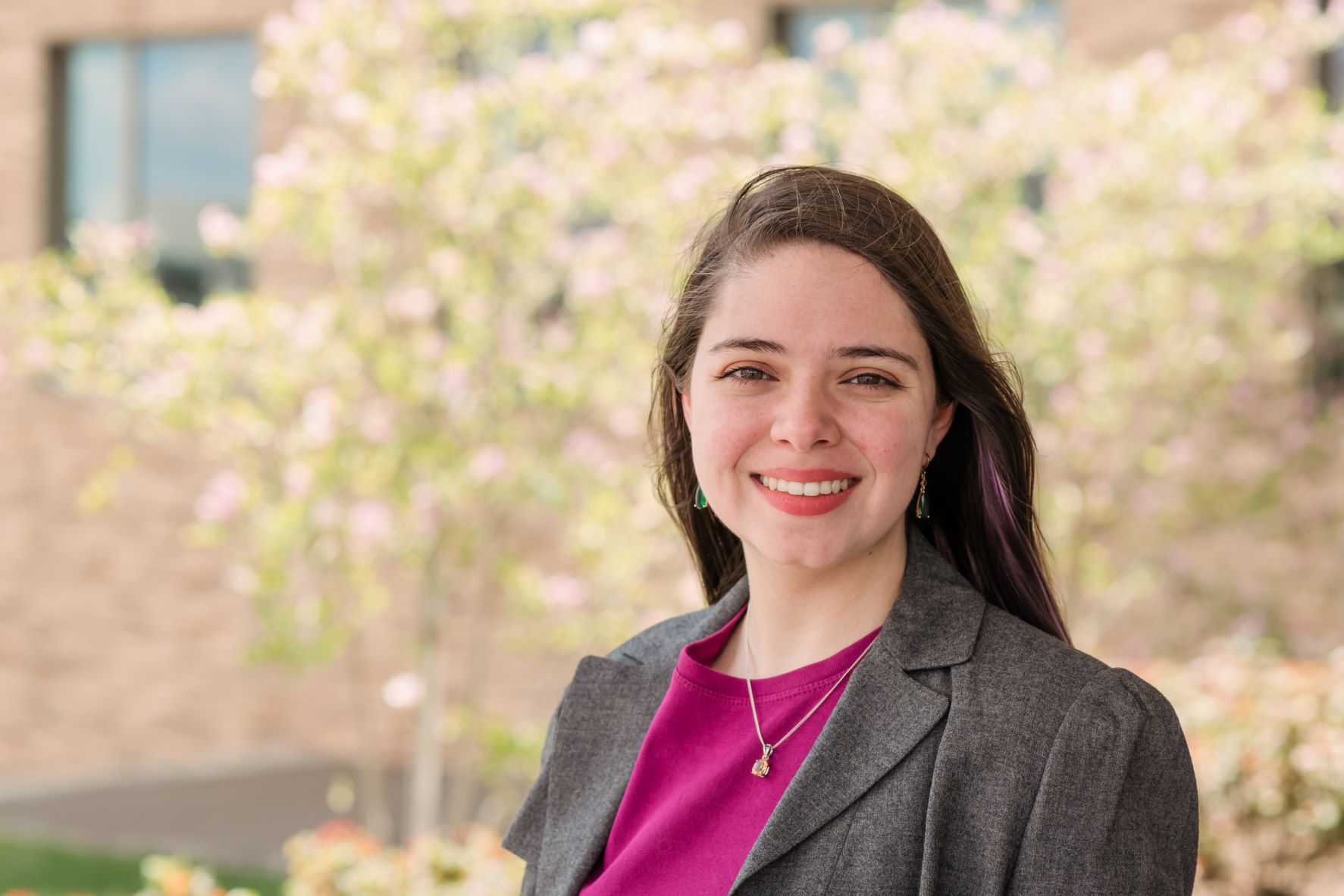UMBC’s newest grads continue to grow spirit of community empowerment, impact
By: David Hoffman and Romy Hübler
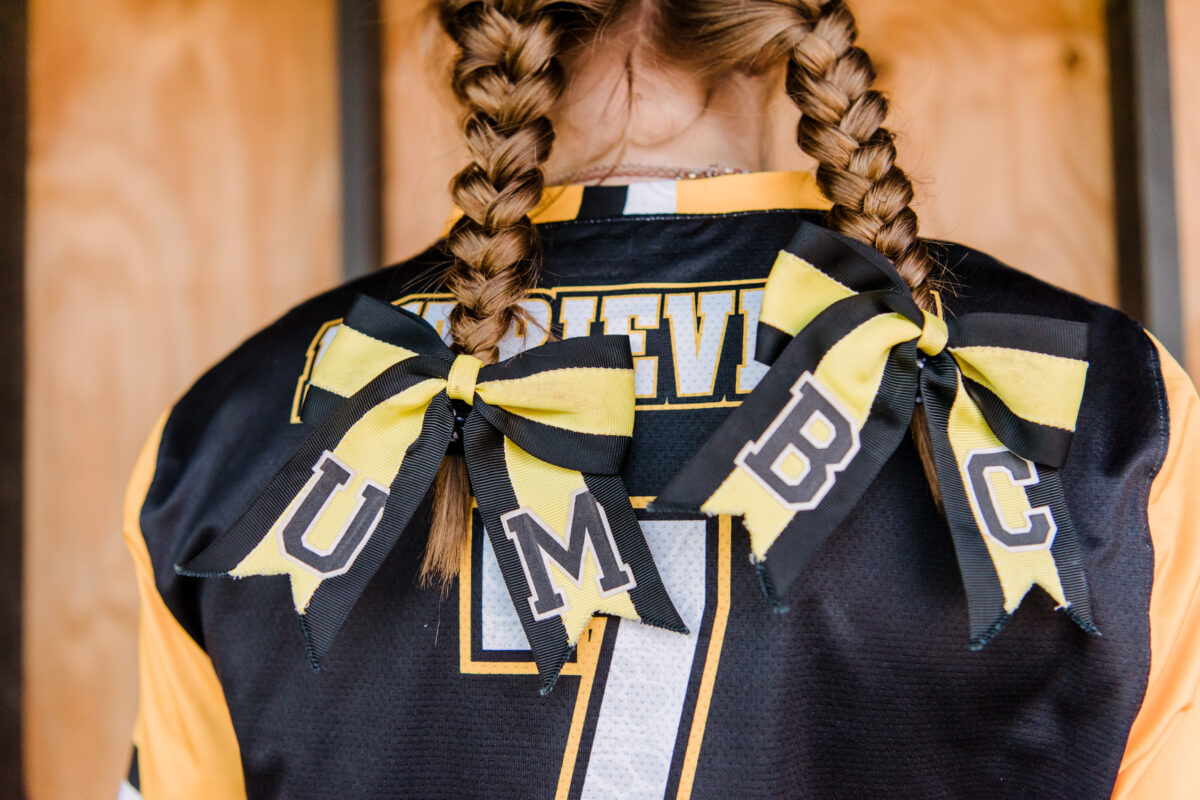
Members of the Class of 2022 have experienced college in a period of multiple overlapping crises, including a global pandemic, continuing racial injustices, climate disasters, international conflict, and threats against democracy. The scale and scope of these challenges can be daunting, but UMBC students, including this year’s graduates, have responded with vision and action.
Their approach: promoting inclusion and belonging right where they are, and building mutually empowering relationships that can change the world.
Inspired by personal experience
Courtney Coppersmith ‘22, chemistry and molecular biology, is one of many UMBC grads who has leveraged their own stories and experiences to make meaningful civic contributions on campus. A star pitcher for UMBC’s championship-winning softball team who also excels academically, she struggled with depression during a busy first year on campus. After her essay about her experiences won a national contest, the America East conference, Major League Baseball, and ESPN shared her story widely.
Teammates and competitors reached out to Coppersmith to say how her message had resonated with them and helped them recognize that they were not alone. She has continued to support UMBC athletes through advocacy and personal encouragement. She has also helped them get involved with campus and community organizations, building networks of support and a sense of connection.
Danylo Leshchyshyn ‘22, history and political science, arrived at UMBC looking for disability support he sometimes had lacked in middle school and high school. He helped to establish the Autism Spectrum Student Association as a connection point and advocacy group for students on the autism spectrum, and worked with peers and staff in Student Disability Services to revive UMBC’s chapter of Delta Alpha Pi, a national honor society for high-achieving students with disabilities.
Leshchyshyn’s UMBC civic legacy also includes speaking about the impact of Russia’s invasion of Ukraine on his family.
Of his time on campus he shares, “You can get anywhere you want from here, and you know you’ll get there as a better person than when you came into UMBC.”
Sharing resources, building connections
Gabby Khan ‘22, computer science, has strengthened the UMBC community in part by paying forward the kindness and care she experienced from peers and mentors in the Honors College and at the Academic Success Center. Some of the students with whom she has worked as a resident assistant and tutor have sent her appreciative messages. Hearing that she was able to help other students at times when they were really struggling has been more than gratifying – it’s also shaped her outlook on what a supportive community can and should do.
Khan now describes her contribution to UMBC’s empowering and supportive culture as part of a “cycle of learning.” “UMBC has been a really welcoming place that I got to learn from, especially from the people around me,” she says. “It never stops at academics.”
For Tess McRae ‘22, individualized study, participating in UMBC’s immersive STRiVE leadership for social impact program opened the door to deep involvement on campus. “It was the first time in my life that I truly learned and understood that I had a story; that my story mattered; that my characteristics and habits and quirks were sources of insight; and that I was not alone in my experiences and feelings,” she says.
After joining the Center for Democracy and Civic Life’s founding staff in 2018, McRae facilitated and contributed to the design of dozens of its programs, including STRiVE. Always on her mind was how to liberate and empower participants in the ways the immersive program had done for her.
Among her UMBC civic legacies is the Co-Create UMBC video tour, which she produced and narrated as a way of inspiring UMBC students to believe in themselves and envision their own contributions to the campus community.
Long line of innovators
While each of these students has had a unique experience and impact, they are also following the legacy of UMBC’s pioneer classes of the 1960s and 1970s. Those early UMBC students established a culture in which they viewed themselves as co-creators of the UMBC community.
In the program for the first UMBC commencement exercises in 1970, graduate Diane Juknelis (now Diane Juknelis Tichnell) reflects, “The present class of graduates is the first in a long line of innovators who are not to be considered products of UMBC, but rather constant producers of all that gives it character and quality.”
Each students’ civic legacy is specific to a time, place, people and organizations. And it is also much broader – over time shaping UMBC as a warm, inclusive, engaging environment in which to learn and grow.

